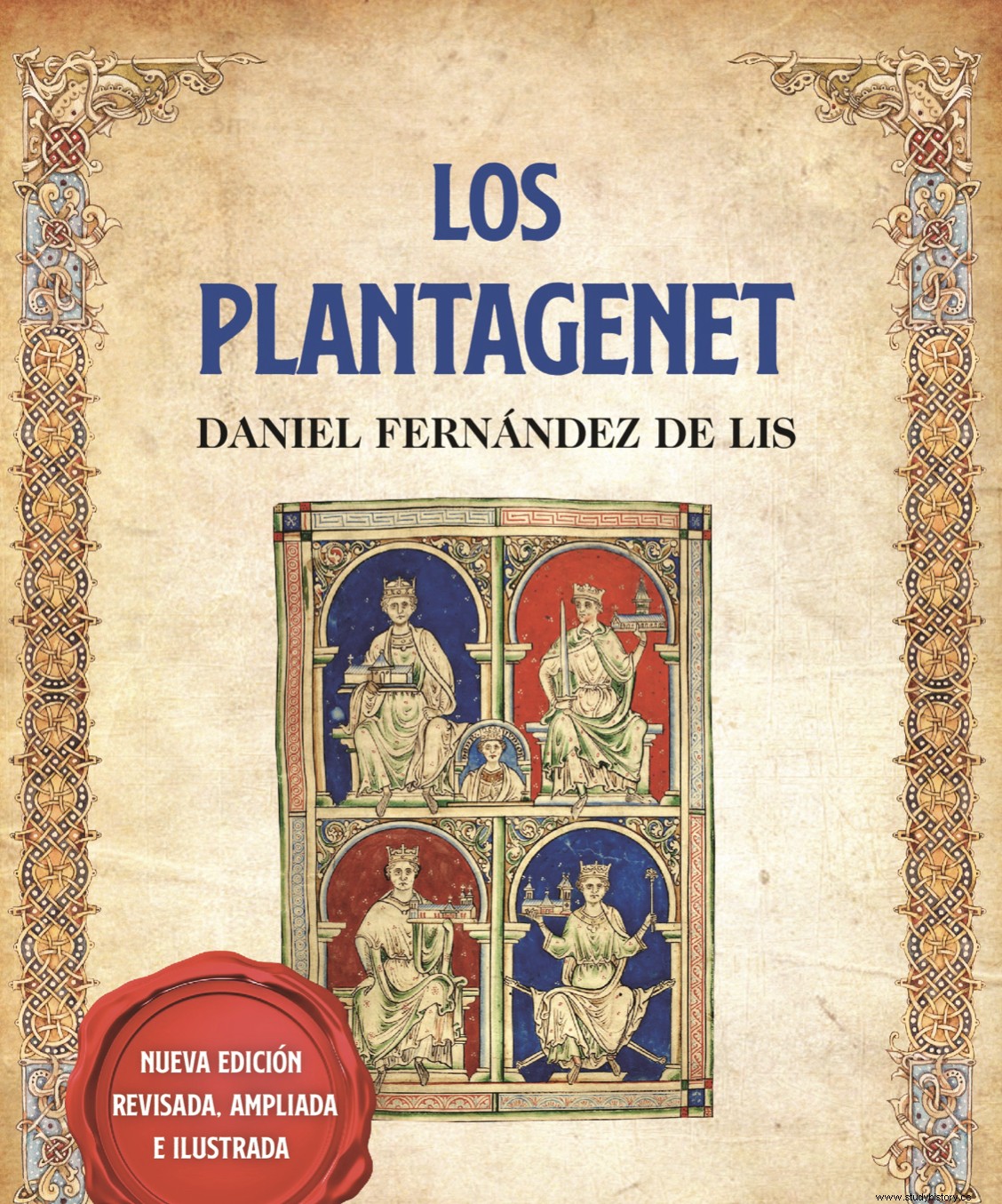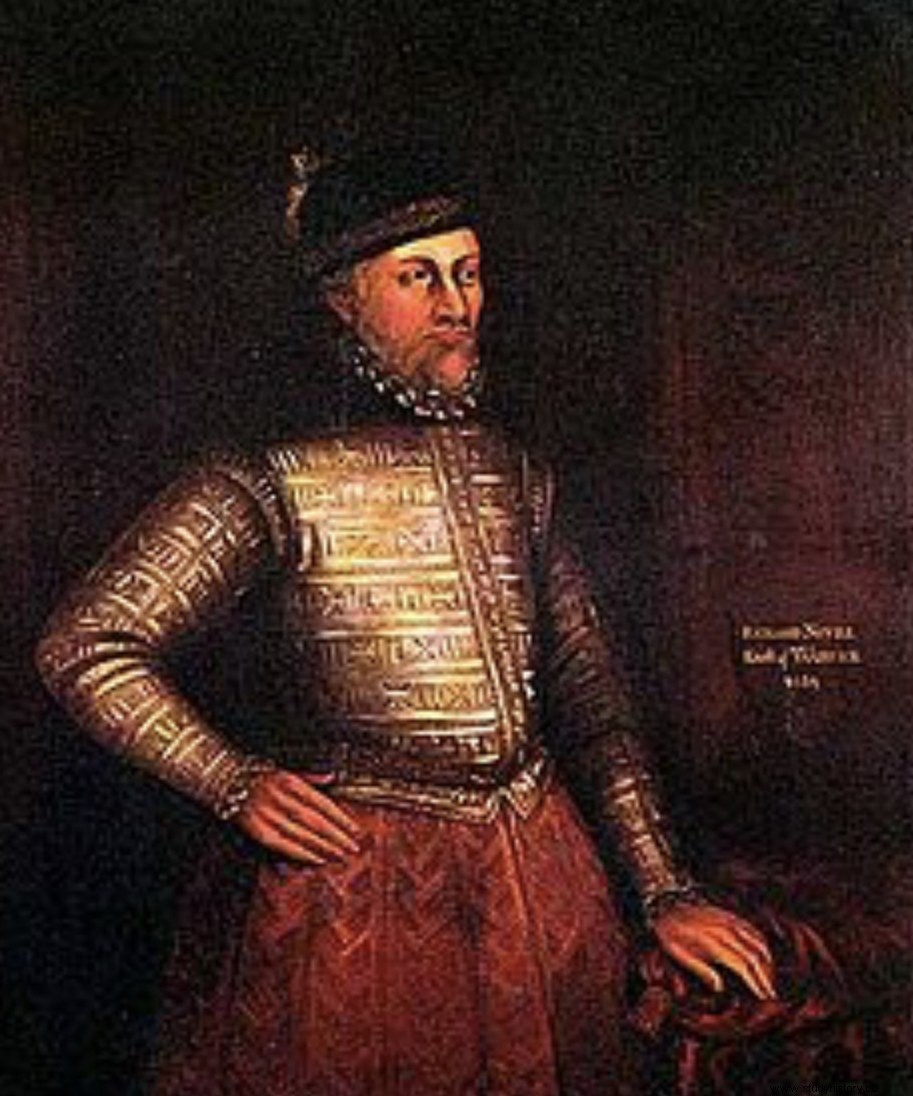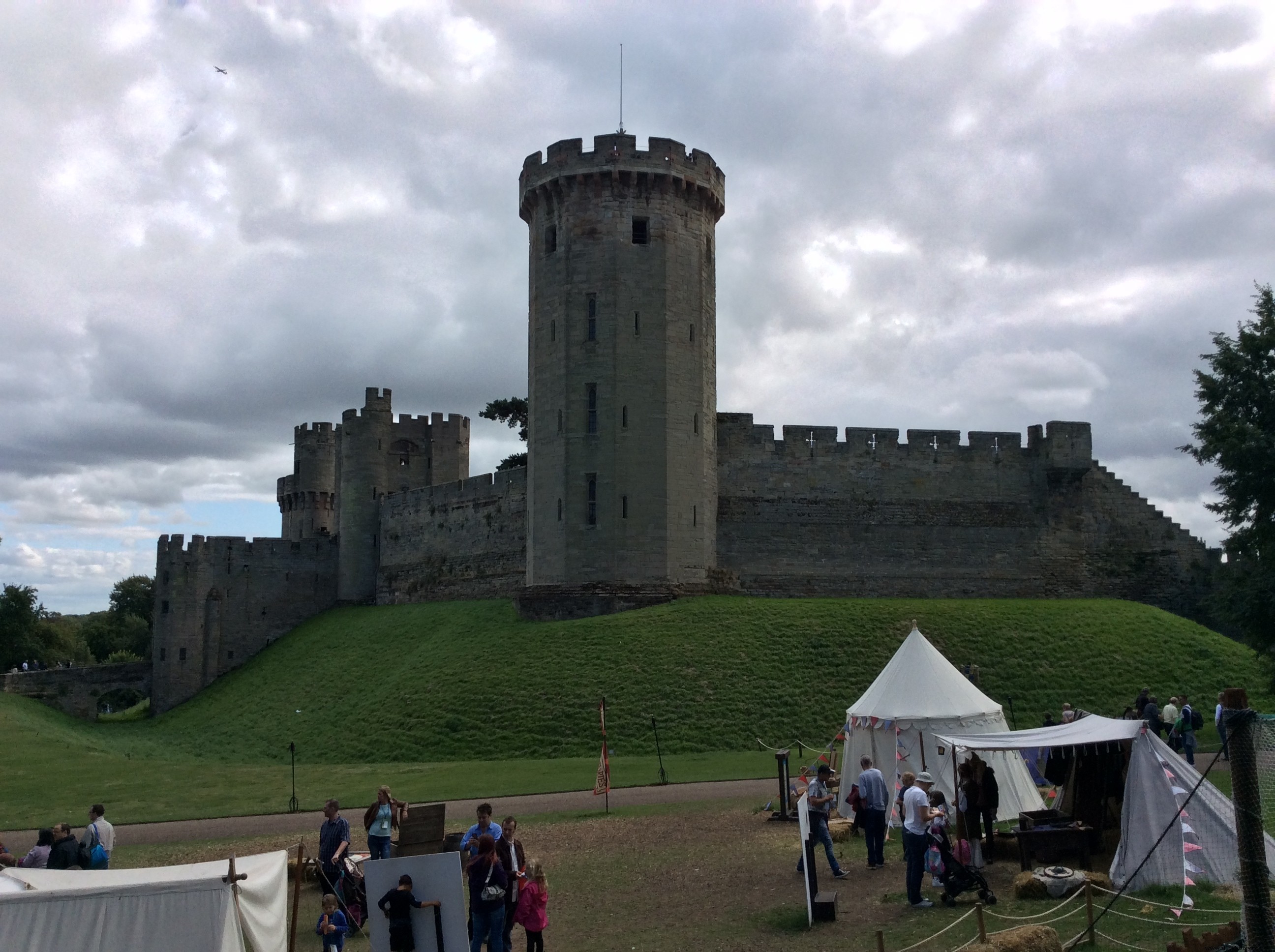
Entry taken from the book The Plantagenets
The war name of the Roses refers to the dynastic conflict that took place in England between 1455 and 1485 and that confronted the houses of York and Lancaster, rival branches of the Plantagenet dynasty. The name "War of the Roses" comes from the symbols of both contending houses, a white rose for the Yorks and a red rose for the Lancasters.
One of the key characters in this conflict was Richard Neville, Earl of Warwick, who went down in history with the nickname of The Kingmaker or the Enthroner.

In 1453 the English king Henry VI, of the house of Lancaster, suffers a relapse of the mental illness that he inherited from his grandfather, the King of France, Charles VI the Mad (see the blog article dedicated to the mother of Henry VI, Catherine of Valois). The king is unable to govern and there is a fight for the regency of the kingdom between the monarch's wife Margaret of Anjou, supported by the Duke of Somerset, and Richard of York, head of the house of the same name. The Duke of York is joined by various nobles dissatisfied with the treaty signed by Henry VI with France by which the English possessions on the continent won by the king's father, Henry V, after the battle of Agincourt were ceded. The only enclave that remained in the hands of the English in France was Calais.
The Yorks considered themselves to have a better claim to the throne than their relatives the Lancastrians (explaining the origin of the conflict would force us to go back sixty years more in time, so we will leave it for another entry) and saw their opportunity in the power vacuum caused by the king's incapacity. With the aforementioned assistance and support of an important group of nobles, Richard of York exercises the regency until in 1455 Henry VI recovers his mental health and with it power, in which he reinstalls the Duke of Somerset.

Richard of York retires to his estates, but When he is called to hold a royal council in Leicester, he suspects that he is going to be held accountable for his actions between 1453 and 1455 and takes up arms, thus beginning the War of the Roses. Richard's main support in this rebellion was his wife's brother, Richard Neville, Duke of Salisbury and his son of the same name who holds the title of Earl of Warwick, our protagonist. His castles and his troops constitute a decisive element in deciding the balance of the war, while he decides who to support according to his interests.
Thus, Richard Neville becomes the fundamental element in the struggle for power between the York and the Lancasters, to the point of having gone down in history with the nickname of The Kingmaker. In the first battles of the war (St. Albans in 1455, Blore Heath and Ludford in 1459), he supports his uncle Richard of York in her bid for power. Warwick was victorious at the Battle of Northampton in 1460, after which Henry VI appointed Richard of York as heir to the throne.
However, part of the Lancaster party rebels against the agreement that the king is forced to sign and at the battle of Wakefield they defeat and kill Richard of York. Warwick, always in the background, transfers his support to Richard's son and heir, Edward of York. He remade the battered and scattered forces of the York (in exile in France and Holland) until his candidate again reached the throne with the name of Edward IV after the battles of Mortimer's Cross and Towton in 1461. Towton is considered as the bloodiest battle ever fought on English soil by number of casualties.
With Edward IV on the throne, Henry VI imprisoned in London, and his wife and the rest of his party in exile in France, it seemed that the Wars of the Roses had ended with the victory of the Yorks. And so it would have been if it weren't for our protagonist The Kingmaker. His growing differences with his cousin the king over foreign and dynastic policy erupt when Edward secretly marries Elizabeth Woodville. This marriage shatters Warwick's negotiations for a strategically essential marriage for England. In addition, the new queen has a large family whom she is gradually placing in decisive positions in the government, thus displacing the influence of the Earl of Warwick.
Our protagonist's reaction is immediate and, turning his back on Edward IV, he allies himself with the king's wayward brother, George, Duke of Clarence. They defeat the monarch in another battle (Edgecote, 1469) and even take him prisoner. But Eduardo manages to escape, regains power and forces Warwick into exile in France. Our protagonist does not give up; he repeats his move to rescue the displaced house of power from exile and battles the monarch along with the Lancasters. In 1470, Warwick defeats and exiles Edward and restores Henry VI to the throne.
How could it be otherwise, the story does not end here either. Edward IV returns from Dutch exile and after several battles (in one of which, Barnet 1471, our protagonist dies) he achieves a decisive victory over the Lancasters in Tewkesbury in 1471, where the heir of Henry VI is executed, who later dies in difficult circumstances. unclear at the Tower of London.

After Tewkesbury, and dead The Kingmaker Warwick, Eduardo IV managed to settle definitively on the throne until his death in 1483. What happened in the following years between his son, his brother Richard and a character loosely related to the Lancastrians surpasses any fiction script... but that's another story.
In my usual literary recommendation, on the Wars of the Roses I have already spoken on other occasions of the series of novels written by Sharon Kay Penman; what's more. Philippa Gregory's famed novel The White Queen tells the story of Elizabeth Woodville. And of course, the tangential characters in this entry Henry V (father of Henry VI) and Richard III (brother of Edward IV) were immortalized in plays by William Shakespeare.
Finally, for those who are more interested in knowing in detail this and other episodes of the history of England through non-fiction works, I once again recommend The History of Peter Ackroyd's England, Roy Strong's The Story of Britain and Simon Schama's BBC documentary series A History of Britain.
